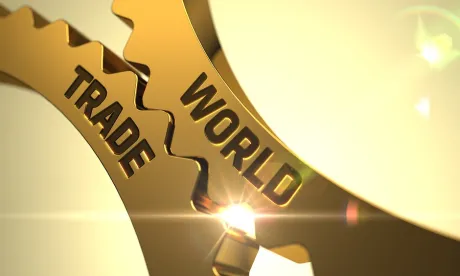During the 2016 presidential campaign, President Trump made clear his plans to chart a new course on U.S. trade policy. The first few days of his presidency indicate his commitment to follow through on these plans.
In his Inaugural Address, President Trump included trade among the policy areas that would be guided by an “America First” agenda, and stated:
From this moment on, it’s going to be America First. Every decision on trade, on taxes, on immigration, on foreign affairs, will be made to benefit American workers and American families. We must protect our borders from the ravages of other countries making our products, stealing our companies, and destroying our jobs. Protection will lead to great prosperity and strength.
On January 21, President Trump’s first full day in office, the White House website added a policy statement called “Trade Deals Working for All Americans.” This statement sets forth the new administration’s stance on existing trade agreements, negotiating priorities for future agreements, and its stance on trade enforcement.
According to this policy statement, prior trade deals “put the interests of insiders and the Washington elite over the hard-working men and women of this country.” The statement touted President Trump’s “lifetime of negotiating experience” and his understanding of the “critical” need to “put American workers and businesses first when it comes to trade.” As concrete steps, the policy statement suggests that the United States will withdraw from the Trans-Pacific Partnership (“TPP”), renegotiate NAFTA, and ensure that any new trade deals are in the interests of American workers. Today, the President issued an Executive Order officially withdrawing the United States from the TPP Agreement.
As for negotiating priorities of the new administration, the January 21 policy statement emphasized the importance of “fighting for fair but tough trade deals” which would “bring jobs back to America’s shores, increase wages, and support U.S. manufacturing.” The policy statement also noted the qualifications of President Trump’s team to perform these functions: “the President is appointing the toughest and smartest to his trade team, ensuring that Americans have the best negotiators possible.”
Finally, the January 21 policy statement suggested that the new administration will take a strong stance on trade enforcement. As the statement provides, the new administration will “crack down on those nations that violate trade agreements and harm American workers in the process.” President Trump appears to envision a strong role for the U.S. Department of Commerce in trade enforcement. This January 21 statement indicates that, to give effect to planned trade enforcement actions, “[t]he President will direct the Commerce Secretary to identify all trade violations and to use every tool at the federal government’s disposal to end these abuses.”
This January 21 policy statement largely reflects statements made in then-candidate Trump’s remarks on October 22, 2016 in Gettysburg, Pennsylvania, called the “Contract for the American Voter.” In these October 22 remarks, Mr. Trump pledged to “begin taking the following . . . actions to protect American workers” on his first day in office:
-
FIRST, I will announce my intention to renegotiate NAFTA or withdraw from the deal under Article 2205
-
SECOND, I will announce our withdrawal from the Trans-Pacific Partnership
-
THIRD, I will direct my Secretary of the Treasury to label China a currency manipulator
-
FOURTH, I will direct the Secretary of Commerce and U.S. Trade Representative to identify all foreign trading abuses that unfairly impact American workers and direct them to use every tool under American and international law to end those abuses immediately
The January 21 policy statement does not mention China’s currency policies. President Trump has reportedly indicated that he would take no action regarding these policies pending bilateral discussions to address his concerns. In written statements following his confirmation hearing last week, President Trump’s nominee for U.S. Treasury Secretary Steven Mnuchin has left open the possibility of taking action to label China a currency manipulator.





 />i
/>i

